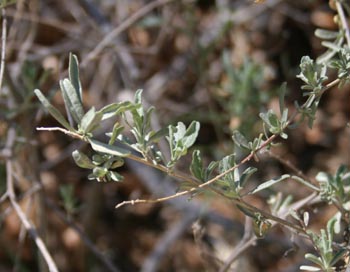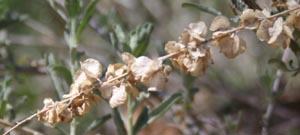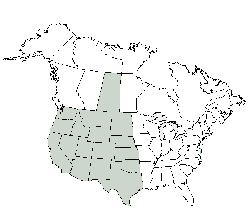Cabbage Gardening
Cabbage, made up of several types of Brassica, is a leafy green, red, or white colored biennial plant grown as an annual for its dense multi-layered leaved heads. The leaves are commonly smooth in texture, but crinkle-leafed savoy cabbages are also grown (my favorites). They weigh generally from 1 to 5 lbs. however there are varieties that grow much larger for. Cabbage heads are picked during the first year of the plant’s life cycle. Plants intended for seed are grown into a second year.
Cabbage contain the following vitamins and minerals:
Thiamine (B1); Riboflavin (B2); Niacin (B3); B5; Vitamin B6; Folate; Vitamin C and Vitamin K
Calcium; Iron; Magnesium; Manganese; Phosphorus; Potassium; Sodium and Zinc
Cabbage History
It is descended from the wild cabbage and belongs to the brassicas, meaning it is closely related to broccoli, cauliflower and brussels sprouts. Cabbage was most likely domesticated somewhere in Europe before 1000 BC. Savoy cabbage was developed around the 16th century AD. World production of cabbage and other brassicas for 2017 was 71 million tons, with China accounting for 47% of the world total.
Types of Cabbage
Green
Early Golden Acre; a northern favorite that is ideal for smaller gardens. Round and compact, their heads average 2-3 pounds of sweet flavor – Ferry Morse
Early Jersey Wakefield; favorite with a distinctly sweet flavor – Burpee
Red
Salad Delight; an early maturing red cabbage with a 3 lb. head – Burpee
Red Express; very nice color and early maturity, compact habit 2 – 4 lb. heads – High Mowing Seeds
Savoy
Perfection Savoy; heirloom green savoy – Hudson Valley Seed Co
Purple Savoy; Produces small, 1-3 pound heads, a bit later than other varieties – Hudson Valley Seed Co
Cabbage has been selectively bred for head weight and characteristics such as frost hardiness, fast growth and storage ability. The appearance of the cabbage head has been given importance in selective breeding, with varieties being chosen for shape, color, firmness and other physical characteristics.
Commercial breeding objectives are now focused on increasing resistance to various insects and diseases and improving the nutritional content of cabbage. Unfortunately, this means in too many cases GMO. In my opinion it is better to put up with pests and disease management than to grow anything GMO, I may be wrong but allowing scientists and others to create something that may very well be a plant-based-Frankenstein is unsettling.
Where to Plant
Cabbage plants can handle full sun to light shade, so at least 5 to 6 hours of sun. Since cabbage plants are not setting flowers or fruit, they do not need a full day of sun. Cabbage gardening in warmer climates will require some shade during hot months, so the plants do not dry out. If you can, rotate where you plant. Try to avoid planting where cabbage as well as other brassicas have been planted for at least 2 years.
When to Plant
There are cabbage seedlings available at every garden center in spring, but for the best variety you will need to start yours from seed. You can start seeds indoors, about 6 to 10 weeks before your last expected frost date. Cabbages can handle a little frost, so you can transplant seedlings outdoors close to your last frost date as long as the soil is able to be worked and if a hard frost is expected you can cover the plants. Just make sure that any plants started and grown under lights are given the time to acclimate to the sun before being planted into the garden.
How to Plant
Space plants about 2 feet apart in rows with approximately the same spacing. Later plantings can be direct sown in the garden for fall harvest.
Plant Care
Plants perform best when grown in well-drained soil. Different varieties prefer different soil types, ranging from lighter sand to heavier clay, but all prefer fertile ground with a pH between 6.0 and 6.8. For optimal growth when cabbage gardening, there must be adequate levels of nitrogen in the soil, sufficient phosphorus and potassium. Temperatures between 39 and 75 °F prompt the best growth, and extended periods of higher or lower temperatures may result in plants “going nowhere”.
Cabbage likes even moisture to produce good heads. Mulch with compost, finely ground leaves, or finely ground bark to keep the soil cool and moist and to keep down weeds. Water regularly, applying 1 to 1.5 inches of water per week (including rain).
Fertilize plants with a 10-10-10 fertilizer after they begin to develop new leaves and when they start forming heads.
Pests
Cabbage worms and cabbage loopers are the main pest threats. They will munch holes throughout the leaves. Their coloring allows them to blend in with the cabbage, but they can be handpicked easily if you can see them. If you see small white moths around your plants, try and kill them. Check under cabbage leaves for small white (extremely small) nodes – these are the cabbage moth eggs. Crush them!! If you see wasps flying around your cabbages – leave them be, they are hunting the cabbage moth larvae.
Slugs will also attack your cabbages as will cutworms. Spread diatomaceous earth around the plants base. The diatomaceous earth will kill the insects but will not harm the plant and to top that, it is organic.
Root-knot nematodes and cabbage maggots attack the plant below soil level and produce stunted and wilted plants with yellow leaves. Predatory nematodes are a good organic solution to these pests.
Rabbits can also become a problem. If you have rabbits around, fence or net your cabbage beds.
Diseases
One of the most common bacterial diseases to affect cabbage is black rot which causes lesions that start at the leaf margins and wilting of plants.
Clubroot, caused by the Plasmodiophora brassicae, results in swollen, club-like roots. If you have soil PH below 6.0 consider raising it with lime to 6.8 – 7.0, by doing so you may avoid the issues with clubroot.
Downy mildew produces pale leaves with white, brownish or olive mildew on the lower leaf surfaces.
Harvesting
For cabbage that head’s up check for “ripeness” by squeezing it. A head that looks solid and ready may still be flimsy and loose leafed on the inside. When it feels firm, cut the head from the base of the plant. I do let cabbages ready to harvest stay in the garden if I am backed up on work but ff a head cracks, cut it right away. When cabbage gardening is done and cabbages are harvested, remove the remainder of the plant. cabbage gardening lends itself to double cropping with other plants. After you clean up the bed try planting turnips, beets or spinach for extra crop. Heads will keep for several weeks in the refrigerator.


